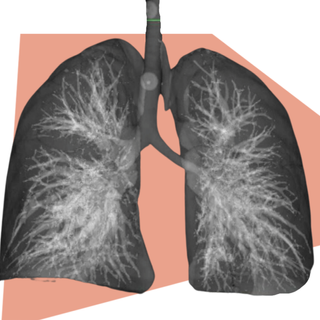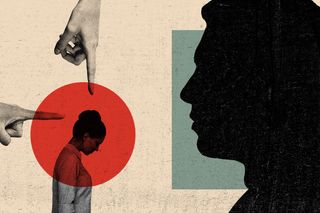
How Social Shaming Feeds Survivors’ Emotional Dependence on Their Abusers
When the path to escape is paved in shame, it often feels easier to stay in the abusive relationship.

This is the second article in a three-part series about the psychology behind survivors of abuse often being unable to escape — or even recognize — the abuse within their relationships.
Survivors of abuse are often bombarded with questions like “Why couldn’t you have just left if things were so bad?” or “Why didn’t you simply tell your friends and family?” But often, myriad reasons make leaving difficult. One such reason is psychological: When it’s difficult to even recognize an experience as abusive, escape isn’t even a consideration.
The most common psychological response to abuse is trauma bonding, which is the emotional attachment that survivors often form with their abusers as a result of repeated cycles of attacks on their self-worth, abuse, and positive reinforcement. And this emotional dependence is fueled by the social shame associated with being in an abusive relationship — a shame that enables abusers in gradually isolating survivors until there is no external support system to aid escape.
Abusers often chip away at survivors’ support systems bit by bit in order to make them more dependent on the abuser’s goodwill, says Samriti Makkar Midha, a Mumbai-based psychotherapist.
For instance, if an abuser gets angry when the survivor doesn’t take their calls, the survivor may avoid talking to friends, so as to always be available to the abuser and thus prevent conflict. Similarly, a survivor may stop meeting friends and family in order to avoid being grilled by the abuser on whom they met, why, and where — a control tactic that not only wears down the survivor but can also trigger conflict if the abuser is dissatisfied with the answers.
Related on The Swaddle:
We’ve Overused the Word ‘Abuse.’ Here’s Why It’s Hurting the Fight For Gender Equality.
The cycle of abuse that survivors experience also involves copious amounts of gaslighting, which leads them to believe they’re at fault or are inadequate, and thus deserving of the abuse. As a result, they begin to believe that discussing the abuse with others would mean admitting to the faults they’re convinced lie within themselves. This is how shame starts to entrap survivors.
A “key emotion [survivors] often experience is shame,” which prevents them from speaking up, explains Taruna Jamalamadaka, DClinPsy, a clinical psychologist from the U.K., who has worked with survivors of abuse.
This shame can be compounded by the reactions of one’s social circle. Samantha, 25, who was not only emotionally abused by her boyfriend but also threatened with physical violence, recalls that she felt ashamed to acknowledge to friends or family that she was steering towards yet another failed relationship, lest they blame her.
This fear of social shame is often present in instances where the survivor is a child, Jamalamadaka explains. The abuser in such cases, often an adult, tells the child, “it’s [their] secret” and convinces the child that if revealed to anyone else, people will “look at [the child] differently” and think there’s something wrong with the child, she says. Often unaware of even the concept of abuse, and scared of being ostracized, the child doesn’t discuss their experience with anyone.
While an adult survivor may have a better understanding of the concept of abuse, social shame leads them to react in much the same way — by keeping their experiences with their abuser to themselves, removing them further from the support and help of friends.
When the abuse is within an intimate relationship, survivors don’t want to admit to their friends that their relationship isn’t ideal, let alone abusive, because admitting socially would also mean they have to admit the abuse to themselves. For example, survivors “don’t want to admit to their friends that the reason they have to leave early is because it’s demanded of them by their controlling partner, since it brings a sense of shame,” Midha notes.
The less a survivor discusses their abusive relationship, the less likely their social circle might be to inquire about it, and the less likely they’ll feel judged or like a failure. This results in a vicious cycle “diminishing the conversations survivors can have about the abuse they’re experiencing,” Jamalamadaka explains. And the more cut off survivors get from their friends, the more the abuser’s narrative seems like the ultimate truth.
Related on The Swaddle:
Shame, Family Secrecy Lead to Mishandling of Child Sexual Abuse
Moreover, perpetrators of abuse are also often “very charismatic, have a circle that appears to love them.” This can seem to the survivor that no one will believe any allegations of abuse, Midha explained.
And when survivors see their abuser “project a different persona outside the house,” or have a completely opposite reputation in society, the idea that no one will believe their version gets cemented further because they know no one is likely to have seen the abusive side of their partner’s personality, Jamalamadaka explained.
Given that society has a long history of treating survivors of abuse with skepticism and distrust, such fears are hardly unfounded — especially for women. “I think there’s fear of shaming, of blaming, of retaliation, of being doubted,” Soraya Chemaly, a gender rights activist from the U.S, had said. She referred to a global, “cultural disposition” to believe “women excessively exaggerate as victims, that they make things up, that there are misinterpretations.” Having witnessed the disbelief other survivors are greeted with doesn’t make it easy for survivors to get help.
For Samantha, her abusive boyfriend’s extreme empathy toward the mental health concerns of his circle of friends left her confused. This charitable side made it difficult for her to grasp the abuse was not her fault — he seemed great to everyone else, except her — and ultimately, to escape.
And so, like many survivors, for a long time she continued to endure abuse in silence — exactly suiting the abuser’s need. As Midha explained, what lies at the very core of abuse is control. Whenever the abuser senses they are “losing control, the abuse also heightens to regain that control,” making it difficult for survivors to assert themselves. And when it feels like social shame is the only other alternative, asserting oneself doesn’t seem worth it.
Devrupa Rakshit is an Associate Editor at The Swaddle. She is a lawyer by education, a poet by accident, a painter by shaukh, and autistic by birth. You can find her on Instagram @devruparakshit.
Related


How I Have Sex: ‘My Chronic Pain Feels Like a Flaw That I Have to Compensate For’
